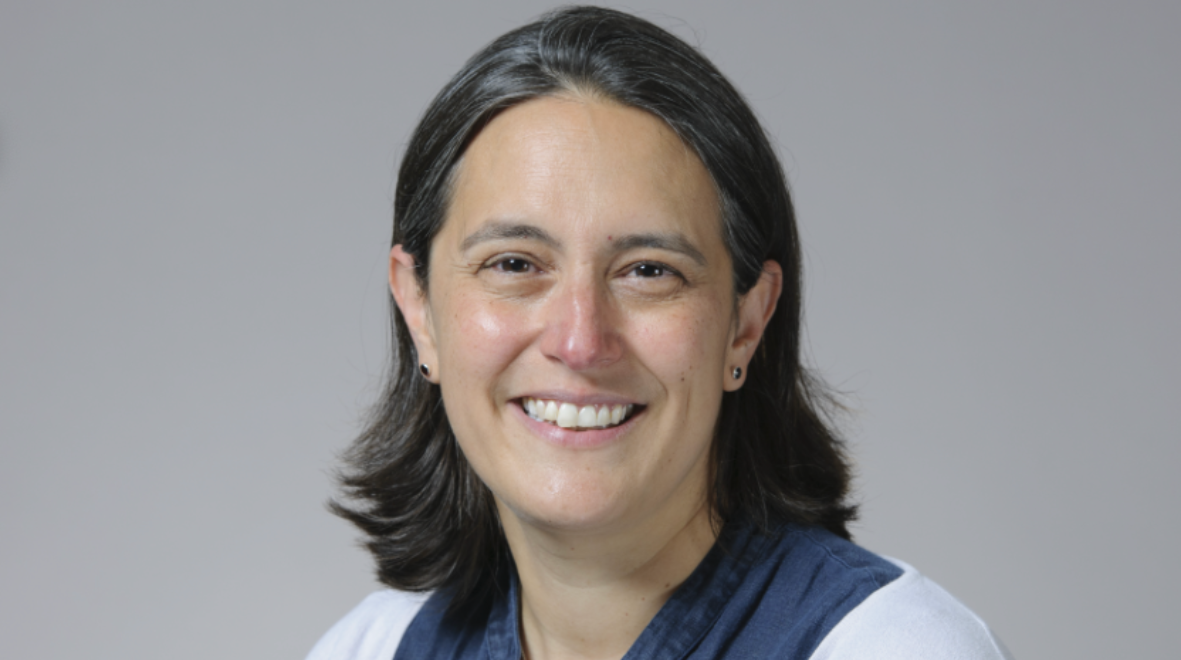
This week marks World Breastfeeding Week, a global campaign dedicated to informing, engaging, and galvanising action on breastfeeding and related issues. Dr Natalie Shenker MBE from the Department of Surgery and Cancer reflects on the progress made in related maternal health research in 2024, and explores how milk banks can help in the much-needed transformation of perinatal healthcare in the UK.
2024 has already been a remarkable year for human milk and lactation science. As interest grows globally in the sector, our understanding of the complex and ancient evolutionary physiological strategies involved, and their impact on infant and maternal health, deepens. The maternal health impacts of lactation and how to best support families are the key focuses of my research, and like much of the work across women’s health, has been largely ignored by mainstream science.
In partnership with The George Institute, the new Women’s Health Network at Imperial College London is seeking to correct these crucial gaps. Excitingly, our study into the mechanisms through which breastfeeding can reduce the risk of certain types of cancer has received further funding from Breast Cancer Now. Yet, there is still so much to discover. Just last month an entirely new hormonal response that explains how breastfeeding protects against osteoporosis was described by scientists at UC Davis. They found bone metabolism increases during lactation to keep up with the large amount of calcium required to produce milk, at the same time as levels of the protective hormone oestrogen fall. Scientists were therefore previously stumped as to how breastfeeding prevents rather than causes maternal osteoporosis. The work, published in Nature, found that during breastfeeding, certain neurons in the brain called KISS1 neurons release a protein called CCN3. This protein helps increase bone repair, boosts the activity of skeletal stem cell activity and even speeds up how quickly fractures repair.
The reality ‘on the ground’
While the science has been awe-inspiring, the reality on the ground remains dire. Families clearly understand the benefits of breastfeeding, but when it comes to trying to feed their babies, just about every barrier possible has been created in the UK over the last 70 years. These range from a loss of shared cultural experience and knowledge, early postnatal discharge, a lack of ubiquitous early specialist lactation support, unsupportive employment practices, insufficient screening tools to detect underlying pathology that can affect milk supply, and many more. These barriers and others combine to mean that nine out of ten women stop feeding before they planned by 6-8 weeks. The skilled knowledge and practical support needed to help families establish and maintain breastfeeding in the UK remains splintered, under-resourced and, anecdotally at least, even less accessible than before the pandemic. Breastfeeding rates in many parts of the country, and particularly those in deprived areas, appear to be falling again. The exception is Scotland, where the devolved government has chosen to invest into peer support, milk banking services, and critically, data collection – the successful outcomes of these are seen in raised initiation rates and increased rates of any breastfeeding at least up to 13 months.
But is hope for families in other devolved nations on the horizon? The last government invested £50 million into the new Family Hubs network, aiding pilot projects to support breastfeeding. However, without the use of an evidence-based strategy to support best-practice implementation, it is not yet clear how well that money has been spent. So, for the first time in 15 years, the new Infant Feeding Survey in England will report next year, and this data will be invaluable to the planning and implementation of services
Equitable milk bank services
My own programme of research has focused specifically on human milk banks, a stretched orphan service analogous to blood transfusion services, which provides screened donor human milk to feed vulnerable infants when their own mothers cannot provide any or enough of their own milk. In collaboration with Professor Amy Brown at Swansea University, work published this year has shown that where donor milk was available as a bridge to breastfeeding, or where breastfeeding was impossible for health reasons such as maternal cancer, parental wellbeing and depression and anxiety scores normalised. Moreover, Professor Brown has shown that women who donated their milk found the experience improved their own wellbeing, particularly those who had experienced birth trauma, a neonatal intensive care stay, or the tragedy of the death of a baby. They described being able to donate their milk as giving them a sense of purpose, maintaining a connection with their baby, and taking control back over their body after very difficult birth experiences. Those women who were unable to donate, often because milk banks were too small to accept milk, described unexpectedly severe and long-lasting negative emotions. This finding surely adds additional weight to the increased resourcing of milk bank services in the UK, to provide truly equitable services that can support families through both donating and receiving donor milk.
Excitingly, one county council, Norfolk, has recently commissioned the Human Milk Foundation to increase access to milk bank services across the county through their Start for Life programme. Over the next year, we will be evaluating how this commissioning translates to more donors recruited, more families supported, and impact on breastfeeding perceptions and rates. Initially, small quantities of donor milk will be made available on the postnatal wards in Norfolk to families where the mother has diabetes during pregnancy. Being breastfed reduces the risk of children developing diabetes, and speeds up how quickly maternal metabolism returns to normal after birth, protecting women with gestational diabetes from developing type II diabetes later in life. However, diabetes in pregnancy can make establishing breastfeeding more challenging, and babies are often given supplemental infant formula. Women are less likely to establish breastfeeding as a result; however previous research has shown women are more likely to see donor milk as a supportive bridge to give them the necessary time until their milk comes in. The results of this innovative pilot project will give valuable information for the planning of a future multicentre clinical trial.
Our work and that of others round the world is showing how significant access to donor milk can be for families facing wide varieties of challenges with feeding their babies. Given that milk bank services are over 85 years old in the UK, it is perhaps surprising that the first UK Framework for Practice guidelines for use were only published in 2023, limited to the use of donor human milk in hospitals. These guidelines made recommendations that babies born very prematurely, less than 32 weeks or weighing less than 1500 grams should have access. But these guidelines fell short of the recent Standards for the Care of the Small and Sick Newborns published by the World Health Organization (WHO) which stated donor milk should be available for all premature infants in the absence or shortfall of maternal milk. Having sat on the British Association of Perinatal Medicine’s working group for the year leading up to the publication, the unfortunate truth is that UK milk banks are currently stretched in terms of staffing and resourcing, and vulnerable to external pressures such as the fuel crisis, and cost of living crisis, as well as the lasting effects of the COVID-19 pandemic, during which it took a monumental collective effort to maintain services. Our modelling work with the University of Exeter suggests that broadening access criteria to babies born less than 34 weeks gestation (two months early) would need milk banks to triple in size. Given how often existing services face donor milk shortages even now, major investment is necessary in staffing, training and service resilience before the UK can hope to meet the WHO recommendations. Work with Warwick University’s Health Economics team to be published shortly will detail what this investment will amount to, as we piece together a roadmap towards sustainable services.
Hope for the future
There is hope that the new government will recognise the critical role of the early years in the health of the nation’s people and economy. Perhaps now is the time for a new taskforce for perinatal care, uniting the multiple branches of medicine and allied healthcare professionals who contribute to the support of families during this critical time. In the meantime, we will continue to work collaboratively to understand how equitable milk bank services can be integrated into existing health structures to benefit as many families as possible.
About the author
 Dr Natalie Shenker MBE established the UK’s first community-based human milk bank, the Hearts Milk Bank in 2017 in partnership with Gillian Weaver. Gillian and Natalie were awarded MBEs in the Kings Birthday Honours List in 2022 for services to charity and human milk banking. Hearts is now the largest human milk bank in the country, supporting scores of NHS trusts, hundreds of families in the community who are currently ineligible for access to donor milk through the NHS, and facilitates much-needed research in the field.
Dr Natalie Shenker MBE established the UK’s first community-based human milk bank, the Hearts Milk Bank in 2017 in partnership with Gillian Weaver. Gillian and Natalie were awarded MBEs in the Kings Birthday Honours List in 2022 for services to charity and human milk banking. Hearts is now the largest human milk bank in the country, supporting scores of NHS trusts, hundreds of families in the community who are currently ineligible for access to donor milk through the NHS, and facilitates much-needed research in the field.